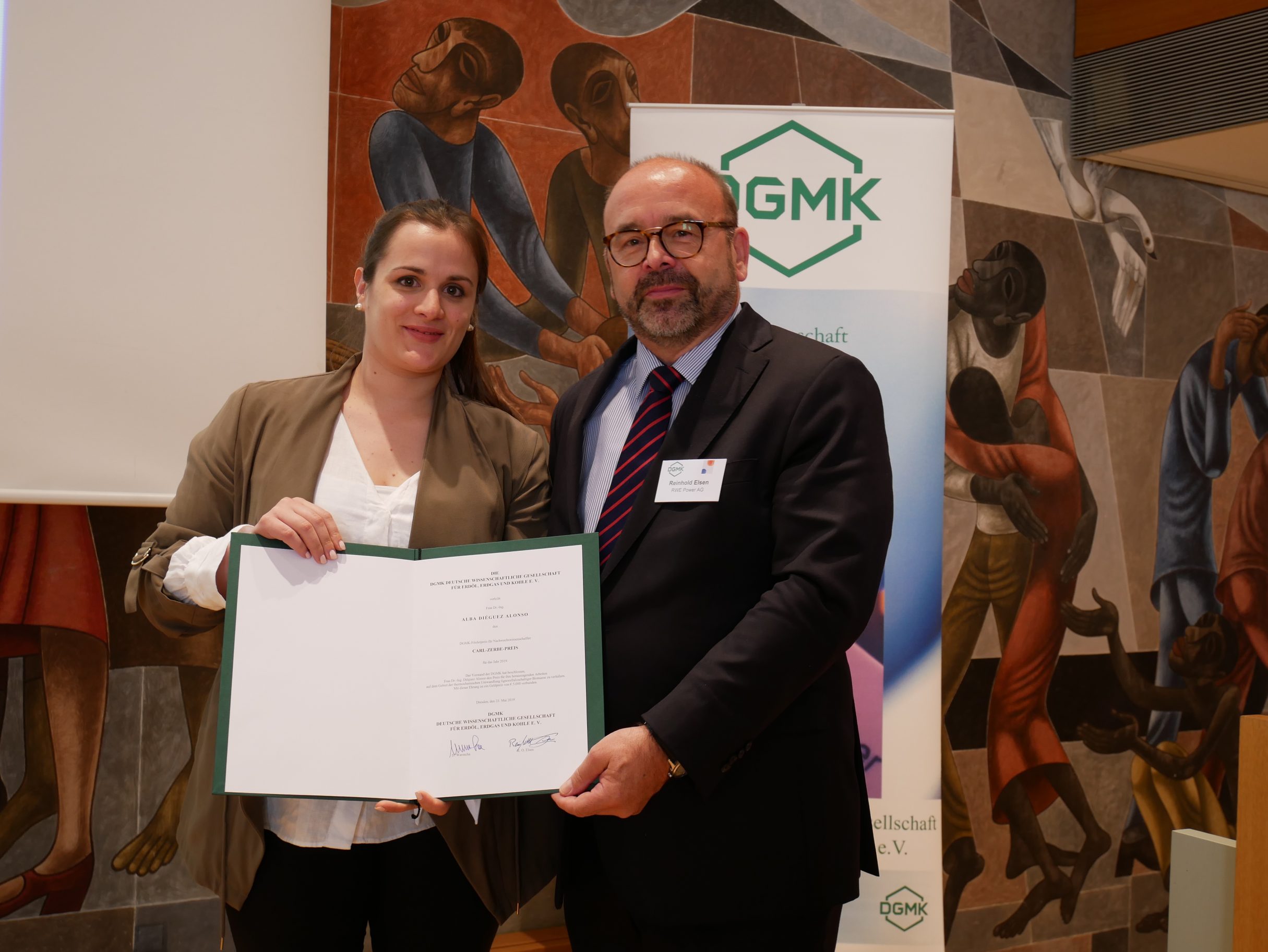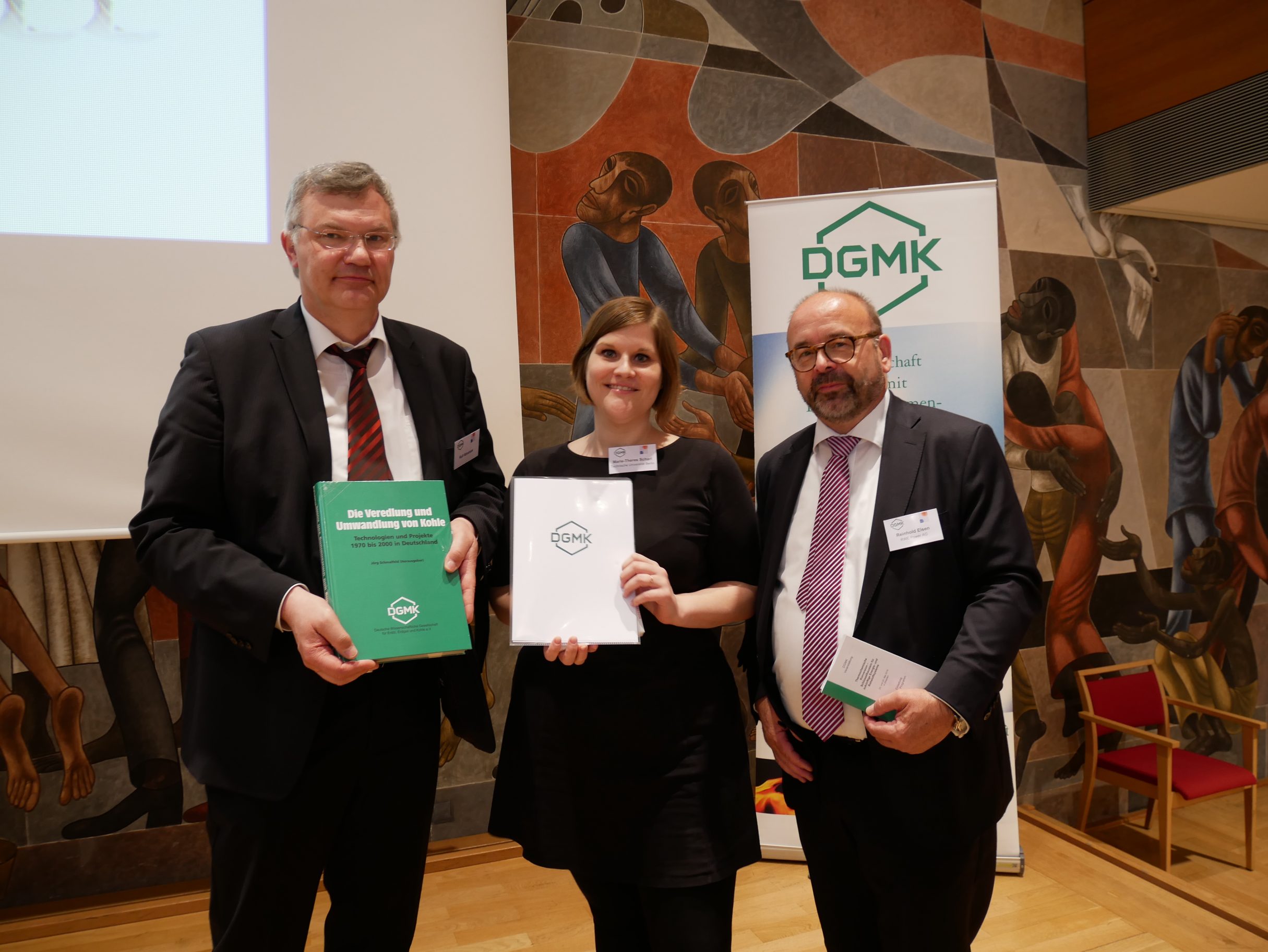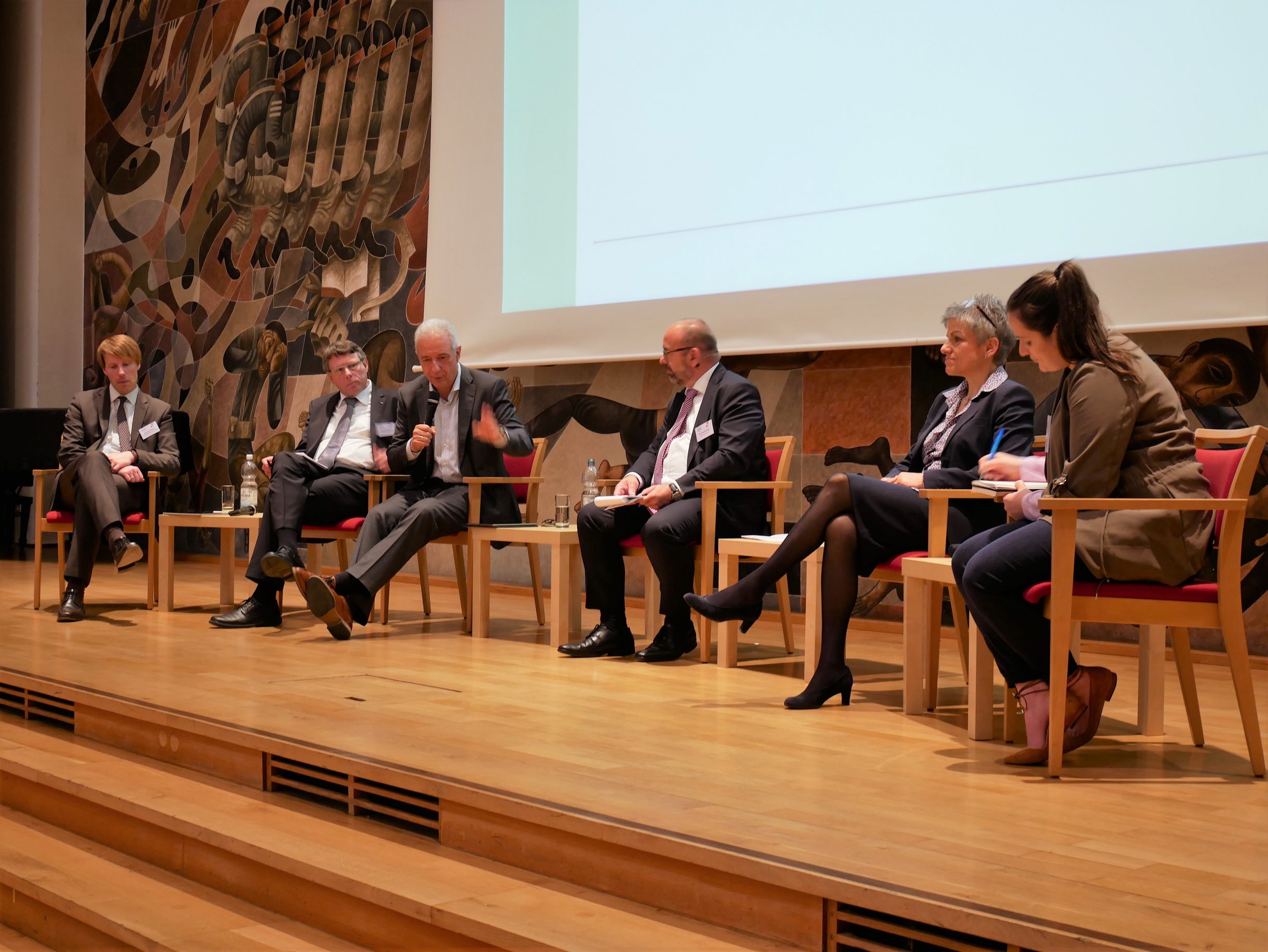Under the conference topic "Thermochemische Konversion – Schlüsselbaustein für zukünftige Energie- und Rohstoffversorgung" (Thermochemical Conversion - Key Building Block for Future Energy and Raw Material Supply), the Coal and Biomass Refining Division of the DGMK, in cooperation with Fördergesellschaft Erneuerbare Energien (FEE), Berlin, held its thirteenth meeting in Dresden on 24 and 25 May 2019 (formerly "Conversion of Biomass and Coal").
In 8 keynotes and 17 technical presentations as well as on 17 posters, innovative processes or procedures and plants for the use of primary and secondary energy raw materials, in particular through thermochemical conversion techniques and the use of the products obtained in energetic and material follow-up processes, were presented. For the first time, the topics of closed carbon cycles and the provision of hydrogen from regeneratively generated electricity were also addressed.
This year's Carl-Zerbe-Prize of the DGMK for outstanding achievements of young scientists was awarded to Dr. Alba Diéguez Alonso from the Technical University of Berlin during the conference. She received the prize for her work on the topic "New Insights into the Mechanism of Wood Pyrolysis".


